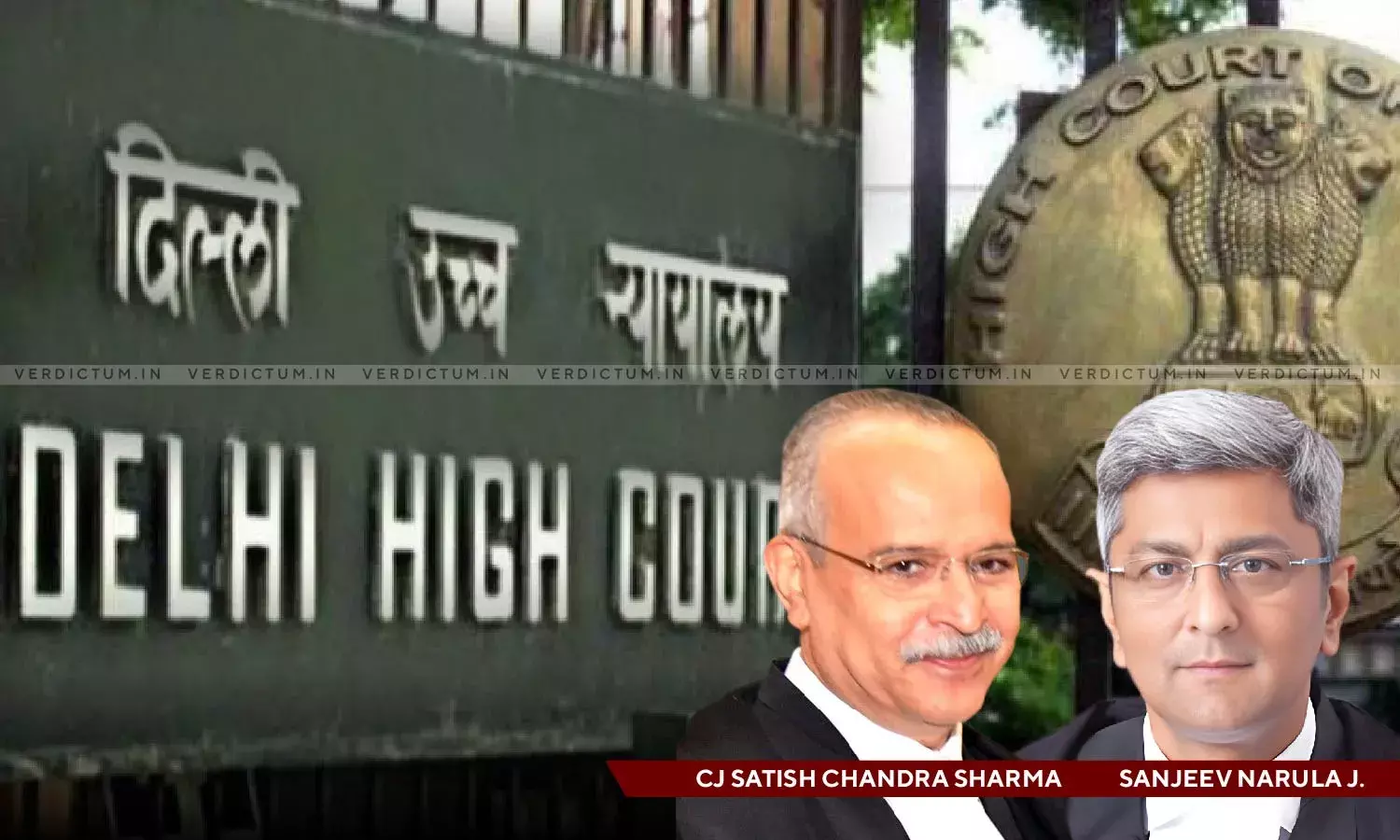Delhi HC Refuses To Impose Complete Ban On Sale Of Acid, Orders Govt To Strictly Implement Rules To Prevent Its Misuse
The Delhi High Court has refused to impose a complete ban on the sale of acid. The Court has further directed the GNCTD to conduct a comprehensive study and evaluate the effects of a complete prohibition on the sales of acid. This study should examine past records of acid-related incidents and explore alternative methods to improve public safety. The Court has instructed the GNCTD to implement necessary measures to address the shortcomings in the current regulatory system, as per the findings of the empirical study.
The Division Bench of Chief Justice Satish Chandra Sharma and Justice Sanjeev Narula held, “Further, we direct the GNCTD to conduct a comprehensive empirical study, aimed at assessing the potential consequences of a complete ban on acid sale on various sectors, individuals, and businesses. Adopting an evidence-based approach will enable the State to better understand the existing policy, the ramifications of changes advocated by the Petitioner, and ascertain its impact on public safety, industry, and other legitimate uses of acid. The study should analyse the historical data on acid-related incidents and also examine the effectiveness of past regulations and their impact on reducing incidence of acid attacks. This enquiry should also explore alternative measures to enhance public safety, in the event a total prohibition is found inviable. For these purposes, engagement with various stakeholders, including advocacy groups, industry representatives, legal experts and medical professionals can provide valuable insights. Based on the findings of the empirical study, GNCTD can analyse and identify any gaps or shortcomings in the existing regulatory scheme and take a well-informed decision”.
Advocate Anuj Kapoor appeared for Petitioner and Standing Counsel Santosh Kumar Tripathi appeared for the Respondent.
A Writ Petition was filed by an acid attack survivor, seeking a total ban on the over-the-counter sale of acid in retail stores. Despite previous directives by the Supreme Court in the cases of Laxmi v. Union of India and Ors. (W.P.(Crl.) No. 129/2006) and Parivartan Kendra v. Union of India and Ors. ((2016) 3 SCC 571) to regulate the sale of acid, the government allegedly failed to address the issue. The Petitioner conducted a survey which showed that acid was easily available in various parts of the city and argued that allowing the open sale of acid was unnecessary and posed a significant threat to public safety.
The Court ascertained whether a complete ban on acid sales was necessary. The Bench recognized that the decision required a thorough review of the laws and an evaluation of the consequences of different approaches and their effectiveness. The Court asserted that rather than completely banning the sale of Acid, the State should prioritize the strict enforcement of the rules and regulations regarding the sale of acid. In order to effectively control the sale of acid and prevent its misuse for criminal activities, it is imperative that the authorities implement the 2015 Rules completely.
In this context, the Bench observed, “A total ban could have unintended consequences, affecting sectors where acid is responsibly and safely utilized. Therefore, striking a balance between public safety and the legitimate uses of acid for industrial and other regulated purposes is crucial. Acid serves various legitimate uses and applications in different industries, and a blanket prohibition could inadvertently affect businesses and individuals who require it for lawful purposes. At the same time, we must and do acknowledge the threat posed by uncontrolled acid sales and the need for stringent measures to prevent such heinous crimes.Therefore, on the basis of material before us, we are of the opinion that an outright ban on the sale of acid may not be the most appropriate approach. Instead, we propose that the State must focus on stringent implementation of the existing rules and regulations governing the sale. By enforcing 2015 Rules with full rigor, the authorities can effectively regulate the sale of acid and prevent its misuse for criminal purposes. This approach would balance the concerns addressed by the Petitioner with the need for safeguarding the legitimate needs of various industries and individuals”.
The State has been instructed by the Court to enforce acid sale regulations strictly and provide effective safeguards against offenders. To reduce acid attacks, it is important to impose severe penalties on perpetrators and proactively monitor them, the Bench observed.
Additionally, the Court appreciated the Petitioner’s dedication towards aiding the survivors and granted her permission to return to the Court in case of breaches after a reasonable amount of time.
Accordingly, the Court disposed of the Petition.
Cause Title: Shaheen Malik v. State of GNCTD Through Principal Secretary & Ors












